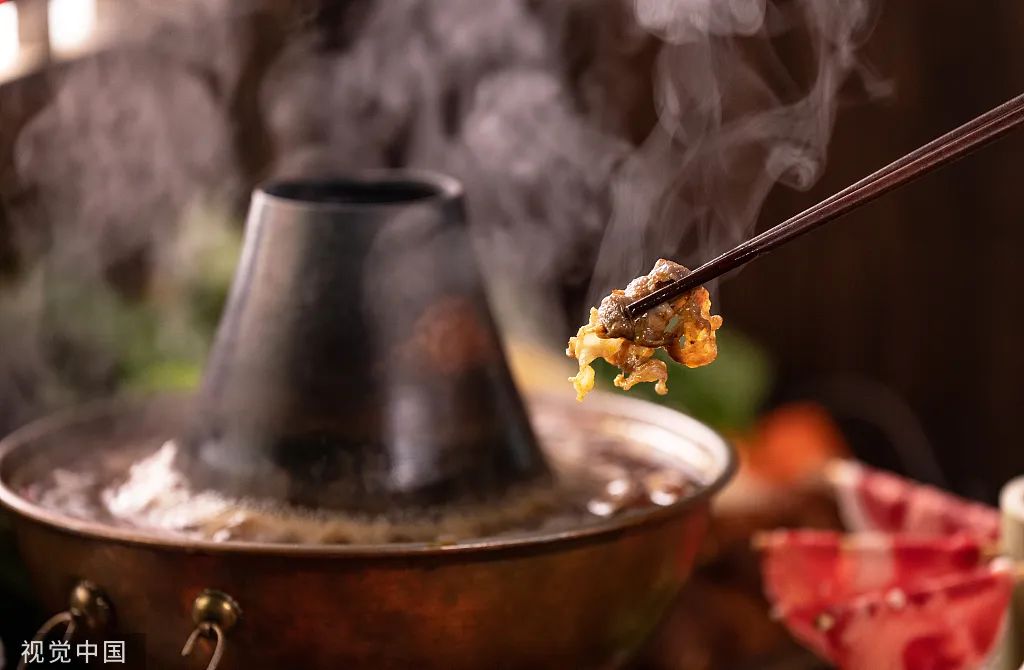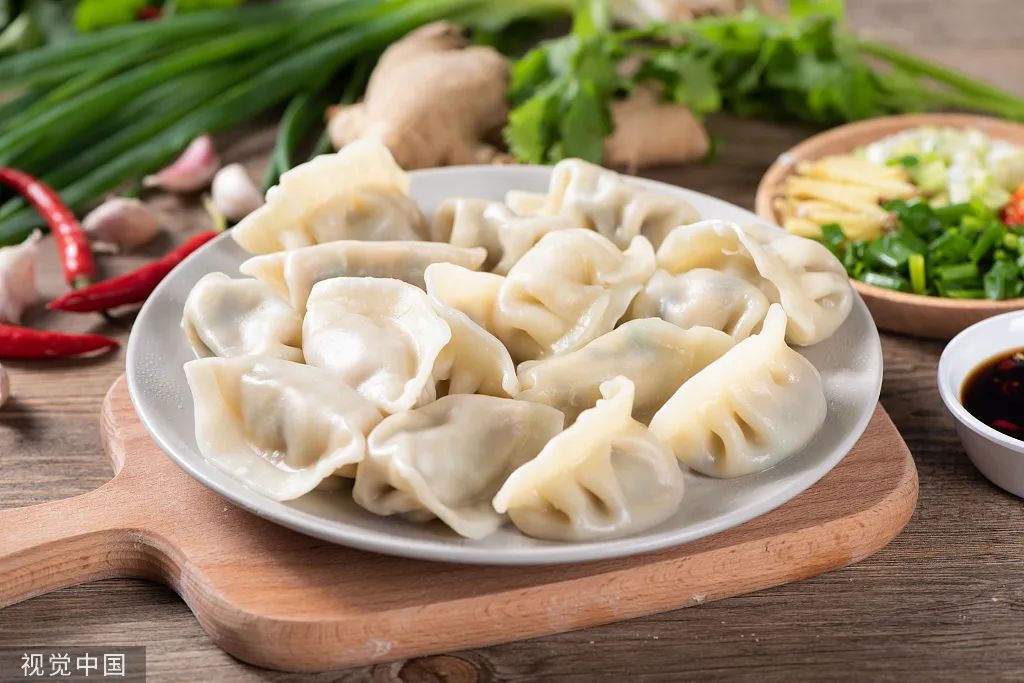Add:1506,Tower West,Jinrun International Plaza,No.85 East Nanxijiang Street,Jianye District,Nanjing,China,210019
Tel: 025-58866358
025-58933315
Fax:025-58867358
E-mail:info@bonagrain.com
Winter once meant fewer food choices for people in northern China, but the tradition of drying and storing food handed down the generations gave the start of the season a special flavor, especially in the country's northeast.
The methods of making pickled vegetables vary in the region. However, with the passing of time, the food itself has become a popular winter dish across the country.
Start of Winter, or lidong, the nineteenth traditional solar term of a total 24, falls on Monday this year. For people in Yanbian Korean autonomous prefecture, Jilin province, making kimchi is a familiar and quintessential ritual to welcome the season.
Before and after that day, every mother in a household would get her whole family mobilized to purchase cabbage, bellflowers, green onions and radish in bulk. Grinding dried peppers into chili flakes or powder and smashing garlic is a full-fledged family affair. Only after this busy period can they enjoy a mouthful of the pickled delicacy during the long cold winter.
Li Shunxian, a Yanbian native, who now works in a tech company in Beijing, recalls the sweet and happy moment when her family pulled together to prepare a variety of kimchi around Start of Winter. It is really a test of patience and taste.

"But the taste of the handmade kimchi is unmatched by those sold in the market. The cabbage marinated in the sauce still retains its own umami and freshness. The sour and spicy taste is moderate, which whets the appetite," she says. "Jars of sour and spicy kimchi were hidden in the cellar waiting for a time to work wonders. It was the only time that I would look forward to the coming of winter."
Grand ceremony
Ancient people used divination to predict the temperature in winter. They believed that if it is crystal clear on lidong, there would be a cold winter; a cloudy lidong would herald a mild winter. Start of Winter announces officially that everything has entered a state of recuperation and collection. The entire period of lidong, which spans 15 days, is divided into three minor phases. Through observation ancient people discovered interesting bits of nature corresponding to each phase.
During the first five days of the solar term, water begins to freeze; during the second phase, the ground begins to freeze. The combination of ice and water always makes for an interesting twist. Frozen soil is an attraction during this period. China's permafrost area is about 2.1 million square kilometers, nearly 90 percent of which is located on the Qinghai-Tibet Plateau.
During the third phase, the saying goes, "pheasants transform into large clams". In the old days, people saw fewer pheasants at that time of the year, but large clams with similar color stripes showed up by the seaside, so they assumed that pheasants had turned into clams after lidong. They also believed that a mirage was formed by clams exhaling cool air.
Lidong has been highly valued since ancient times. An emperor greeted winter in Beijing's northern suburbs. He would hold a grand ceremony on the day, and at the same time, reward families of the deceased who had contributed to society, and show care for their orphans and widows. Three days before the ceremony, the emperor would start to take a bath and fast before welcoming the arrival of winter with piety and solemnity.
In the meantime, average people started to prepare winter clothes. In addition, they also offered sacrifices to ancestors with seasonal agriproducts, and prayed to heaven to bless their harvest in the coming year.
Since the Song Dynasty (960-1279), people developed the habit of putting on new clothes on lidong just like during new year celebrations. The families of scholars and officials paid tribute to their elders and exchanged greetings with each other. The custom is also called "worshiping winter".
Northern taste
On lidong, at the turn of the season, eating nourishing food with a sense of ritual is perhaps what Chinese people cherish the most, a philosophy that conforms to the natural rhythm of creatures on Earth.
It is a time when the autumn harvest of the year prompts people to have the most sense of accomplishment, and it is also a time when they can relax and reward themselves.
Lidong in Beijing is inseparable from a meal of plump and warm lamb. People would smack their lips over the attractive layer of succulent lamb. The locals don't have a unified answer to the style of cooking, but deciding how to eat the meat is itself a winter ritual.
Many natives of Beijing opt for iron plate lamb barbecue. The crackling wood fire in the stove raises the temperature of the iron plate and adds a touch of aroma to the lamb that is roasted on it. When the iron plate starts to get hot, a sophisticated eater will brush a thin layer of oil and spread slices of onion and ginger, and cooking wine over the marinated lamb. The excess lamb fat drips away through the gaps of the plate onto the aromatic firewood, adding more flavor to the meat. The sound of sizzling oily meat popping in the ear, flakes from the fire dancing in the eyes and the fragrance of slowly roasting lamb wafting into the nostrils are probably the most nostalgic sensory experiences of winter in Beijing.
For most northerners, lidong is never complete without the classic Mongolian copper hot pot. Blanching a few slices of lamb as thin as cicada wings into the clarified soup base with floating wolfberries is a refined knowledge of its own in terms of keeping the lamb tender at its best timing. After the slices gradually curl up, a gourmet would dip them into a bowl of some specially made sesame sauce, fermented bean curd and mashed leek paste to complement an incredibly flavorful dish in every way.

Southern flavor
While northerners eat lamb, southerners have an affection for duck. People in Xiamen, Fujian province, prefer to stew a pot of ginger duck that is tender, crisp, and fragrant to kick off the winter.
The dish was originally developed as an imperial meal a hundred years ago. It is necessary to use high-quality sesame oil to fry the Muscovy duck to an attractive caramel color, and then add ginger that is at least three years old and simmer them together with cooking wine. The duck meat is moist but not greasy, mild but not dry. The timing could hardly be better with the company of the dish to warm up the body.
There are also nuances in the making of ginger duck. In Quanzhou, Fujian, people prefer the dry and fragrant way of eating. The soup evaporates completely in a pot, and the ginger duck takes on a rich burned fragrance. The slices of ginger are covered with duck oil and sesame oil, which give a thorny sweetness that lingers for a long time on the palate. In Taiwan, the soup pot-style is the most popular food on lidong. After finishing the fragrant duck meat, one would order meatballs, vegetables, and noodles to cook in the slightly spicy soup base, and the customs to mark the beginning of winter are complete.
In Fujian, glutinous rice harvested in autumn is pounded and made into winter rice balls. Li Lijuan, from Quanzhou, recollects that on the morning of lidong in her childhood, her parents would get up early to steam glutinous rice and make a pounded paste. Her dad would hit the rice with a wooden hammer in a mortar, while her mother folded the flattened rice, and dipped some rice water from time to time to prevent the hammer from sticking to the rice. It usually took more than an hour for the rice balls to be made.

"My sister and I would happily wait in the kitchen and help my mother squeeze the rice balls into the size of a ping-pong ball. We would then dip them in the fried fragrant peanut powder and sugar and serve them in a big bowl. While they were still hot, we would take out some chopsticks and skewered three or four on them. I would be happily waving the skewer like holding a rattle, and finishing them all," Li says.
Quiet melody
In Shaoxing, Zhejiang province, it is tradition to start brewing rice wine on lidong when the temperature is low and the well water clear. It is said that making liquor on such a day can effectively inhibit the breeding of bacteria and help the drink accumulate a good flavor during the longer low-temperature fermentation process.
An old saying in Nanjing, Jiangsu province, goes, "half a spring onion a day brings energy to your legs in winter". As soon as winter begins, Nanjing residents pay special attention to eating raw green onions to resist the dampness and coldness of winter. In traditional Chinese medicine, green onion is deemed warm and pungent in nature, which can make people sweat, so that the stagnant qi, life force or vital energy in the body, is discharged with the sweat. When qi circulates smoothly, diseases are driven out.
Around lidong, many households along the Yangtze River dry cured pork. If it happens to be a sunny day, one could spot strips of salted meat hanging on gates swaying in the wind as if forming a "quiet symphony" of wind chimes. As the weather turns colder, meat does not deteriorate, and the moisture can keep the skin from cracking. The combination of the two cultivate the best state of the preserved pork, which allows the salt and seasoning to merge with the meat. In this way, people there can treat themselves at any time in winter.
"The 24 solar terms are buttons at different positions in the four-season cycle playback system. These keys control different melodies, some intense, some soft, some cheerful, some slow. After pressing the lidong button, there is a soothing and quiet melody, and all things enter a period of dormancy and recuperation," says folklore expert Guo Wenbin.
(from:CHINADAILY)


